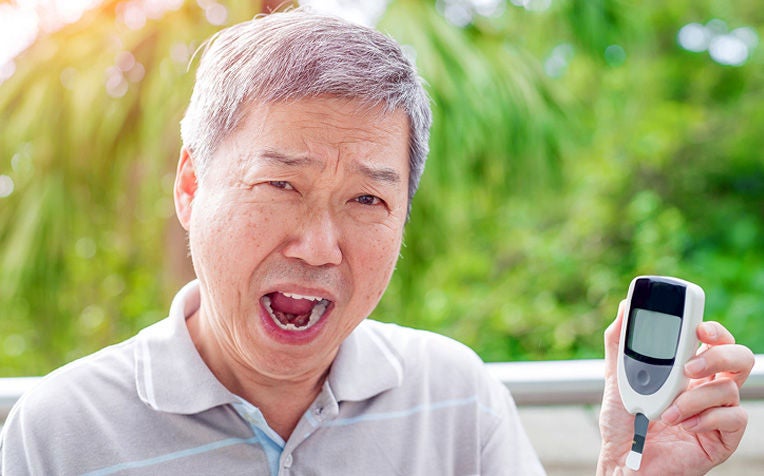
Hyperglycaemia (high blood glucose levels) readings may come as a shock, but there is no need to panic. Just follow 5 simple ways to regain control of your blood glucose levels.
Continued from a previous page.
When hyperglycaemia (high blood glucose levels) occurs, don't panic.
Follow these 5 main ways to control your glucose levels better:
- Take your medications regularly. Take them on time and at the same time each day.
- Aim to have three meals a day. The healthy food plate gives a good idea of the major food groups of each meal that you should target to have.
- Cut and minimise snacking. Snacks are often high in glucose, fat or both. Fruits and sugar-containing drinks are also snacks if consumed between meals. Snacks in between meals will result in high glucose levels before the next meal. Snacks will also increase your caloric intake resulting in weight gain.
- Include regular physical activity as much as you can. Every little bit helps.
- Stay well hydrated and drink water when thirsty. Avoid sugar-sweetened beverages.
“If your 2-hour post meal reading is above target (>10 mmol/l), review what you had in that meal that would raise the glucose level. You may want to modify your intake in the future so that the glucose levels will not be as high," advises Dr Suresh Chandran, Consultant from the Department of Endocrinology at Singapore General Hospital (SGH), a member of the SingHealth group.
"Give it a few days with your dietary changes to see if this has had an impact on your glucose levels. Keeping a food and blood glucose diary can help you keep track of your progress”, he adds.
What are common reasons for high glucose levels?
- Forgetting to take medications
- Irregular or wrong timing in consuming medications. Meal insulins and certain medications (Sulfonylureas) are best taken before a meal.
- Multiple snacks / sugar drinks throughout the day.
- Larger meals may lead to higher post-meal BG levels.
- If you are unwell, your BG levels can be high (See sick day rules)
- If you are taking other medications that could increase your glucose level (e.g. steroids)
Do's and don'ts of hyperglycaemia (high blood glucose levels)
| Do | Don't |
|---|---|
|
|
When should you seek earlier medical attention?
You should consider seeking earlier medical attention if, despite your best efforts:
- You are losing weight and having excessive thirst and frequent urination.
- Your pre-meal glucose levels are repeatedly above 14 mmol/l. This would suggest your diabetes medicines may need changing or intensifying.
- Your fasting glucose level (taken first thing in the morning, before your breakfast) is persistently above 10 mmol/l.
“Don't be afraid to reach out to our medical experts if you need help. They will be able to help you manage your blood glucose levels better”, assures Dr Suresh.
Also, check out our other articles on diabetes:
Easy Steps for a Healthy Diabetes Diet
Diabetes: How to Manage Blood Sugar Levels When You Fall Sick
Diabetes Foot Care: 10 Steps to Healthy Feet
Travelling with Diabetes: Tips Before You Go
Hypoglycaemia (Low Blood Glucose): Warning Signs and Symptoms
Contributed by



















 Get it on Google Play
Get it on Google Play